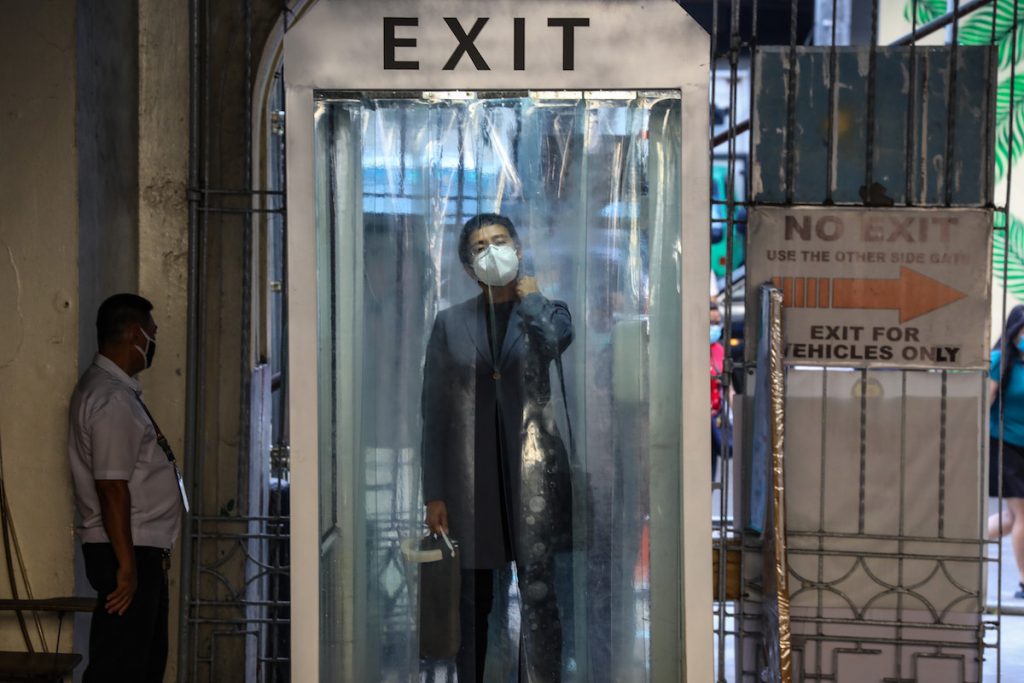The Philippines’ Securities and Exchange Commission (SEC) shut down the news site Rappler, which has been vocal in its reportage on government anomalies, two days before President Rodrigo Duterte’s six-year term ends on Thursday, June 30.
“The company registration and monitoring department is hereby directed to effect the revocation of the certificates of incorporation in the records and system of the Commission,” read part of the SEC order dated June 28.
“In this light, the latest order issued by the Commission En Banc merely puts in effect its earlier decision and those of the Court of Appeals,” said the Commission in a statement.
The news site was co-founded in 2012 by Nobel Peace Prize winner Maria Ressa who has been a vocal critic of Duterte and the deadly drug war he launched in 2016.
In a statement, the SEC said Rappler violated the “constitutional and statutory restrictions on foreign ownership in mass media.”
Rappler said the decision “effectively confirmed the shutdown” of the company and vowed to appeal, describing the proceedings as “highly irregular.”
“We have discussed all possible scenarios with Rapplers (staff) since SEC issued its first order in 2018,” said Glenda Gloria, executive editor and co-founder of the site.
“Nothing ever sufficiently prepares an organization for a ‘kill’ order,” she added.
An internal memo of Rappler to the staff sent late night on Tuesday read: “Clarity, agility, sobriety. Review our drills and the tasks assigned to you.”
“Meantime, it is business as usual for us. We will adapt, adjust, survive and thrive,” it added.
In a statement, Phil Robertson, deputy director for Asia of Human Rights Watch, said the government move “is an effort to shut up [Ressa] and shut down Rappler, by hook or by crook.”
“So it’s entirely predictable that the SEC would bend over backwards to interpret rules in a way that would enable them to take Rappler down while spuriously claiming that this is a normal regulatory action,” said Robertson.

Rappler has had to fight for survival as Duterte’s government accused it of violating a constitutional ban on foreign ownership in securing funding, as well as tax evasion.
It has also been accused of cyber libel — a new criminal law introduced in 2012, the same year Rappler was founded.
Duterte has attacked the website by name, calling it a “fake news outlet,” over a story about one of his closest aides.
The news portal is accused of allowing foreigners to take control of its website through its parent Rappler Holdings’ issuance of “depositary receipts.”
Under the constitution, investment in media is reserved for Filipinos or Filipino-controlled entities.
The case springs from the 2015 investment from the US-based Omidyar Network, which was established by eBay founder Pierre Omidyar.
Omidyar later transferred its investment in Rappler to the site’s local managers to stave off efforts by Duterte to shut it down.
Ressa is fighting at least seven court cases, including an appeal against a conviction in a cyber libel case, for which she is on bail and faces up to six years in prison.
The International Center for Journalists has urged the Philippine government to reverse its order to shut down Rappler.
“This legal harassment not only costs Rappler time, money and energy. It enables relentless and prolific online violence designed to chill independent reporting,” ICFJ said in a statement posted on Twitter. – with a report from AFP